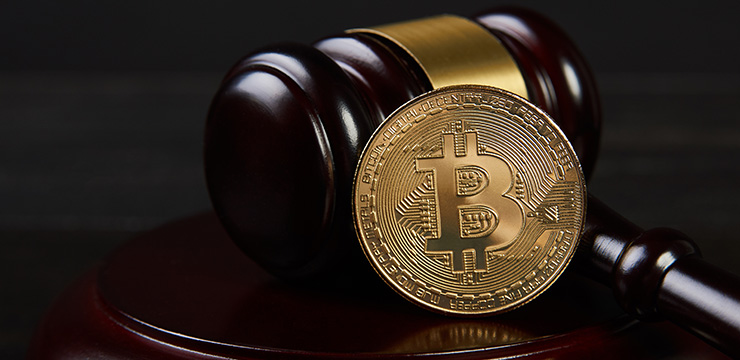Pocketful of Quarters, Inc. (PoQ) is the second-ever recipient of no-action relief from the Division of Corporation Finance of the Securities and Exchange Commission for the issuance of “Quarters.” Quarters are a digital arcade token that is usable, like its conventional physical counterparts, across participating games and platforms. This no-action relief evidences a more thoughtful and sophisticated approach to the regulation of digital tokens and, in that respect, is welcome news to an industry that has been adrift since SEC Chairman Clayton’s statement in December 2017 that “[b]y and large, the structures of initial coin offerings that [he has] seen promoted involve the offer and sale of securities.” This no-action relief, though arguably unnecessary because Quarters are clearly not securities, confirms that certain classes of tokens are not subject to the requirements of the federal securities laws. Moreover, the conditions and restrictions imposed by the no-action letter on the issuance and use of Quarters are so onerous that the relief granted, while reaffirming, is not groundbreaking.

In the no-action relief, the Chief Legal Advisor to FinHub indicated that, subject to conditions, the Division would not recommend enforcement action to the Commission if PoQ offers and sells Quarters without registering the tokens as securities under Section 5 of the Securities Act and Section 12(g) of the Exchange Act. Some of the more significant conditions are:
- The Quarters will be immediately usable for their intended purposes (gaming) at the time they are sold;
- PoQ will restrict the transfer of Quarters through technological and contractual provisions governing the Quarters and the Quarters Platform that restrict the transfer of Quarters to PoQ or to wallets on the Quarters Platform;
- Gamers will only be able to transfer Quarters to addresses of Developers with Approved Accounts or to PoQ in connection with participation in e-sports tournaments;
- Only Developers and Influencers with Approved Accounts will be capable of exchanging Quarters for ETH at pre-determined exchange rates by transferring their Quarters to the Quarters Smart Contract;
- Quarters will be made continuously available to gamers in unlimited quantities at a fixed price;
- PoQ will market and sell Quarters to gamers solely for consumptive use as a means of accessing and interacting with Participating Games.
Considered as a whole, these conditions are so restrictive and duplicative that they raise doubt as to the necessity of the relief. For example, since Quarters will be made continuously available in unlimited quantities at a fixed price, no reasonable purchaser can expect the price of Quarters to increase and therefore cannot expect to profit from the purchase of Quarters. Accordingly, the transfer and secondary market trading restrictions are superfluous, and by highlighting them as a condition of the relief, CorpFin is effectively imposing conditions on a non-security.
Commissioner Hester Pierce raised a similar concern regarding the staff’s issuance of the first token no-action letter to TurnKey Jet, a charter jet company that sought to tokenize gift cards that could be used to charter its jet services. She stated that the offering of Turnkey tokens is so “clearly not an offer of securities that I worry the staff’s issuance of a digital token no-action letter . . . may in fact have the effect of broadening the perceived reach of our securities laws.” She continued by stating that the Turnkey no-action letter “effectively imposed conditions on a non-security.” Nevertheless, the Quarter’s no-action relief should be touted because it reestablishes the possibility of issuing a digital token that is not a security.
There are three additional aspects of PoQ’s letter requesting no-action relief that merit special attention: (i) the two-tiered token approach used by PoQ; (ii) the built-in token economics managed by a smart contract; and (iii) the condition that KYC/AML compliance reviews must be made at account initiation and on an ongoing basis.
First, Quarters are the second class of tokens that PoQ will issue, but the only one for which it sought no-action relief. PoQ conceded that the first class of tokens PoQ issued, “Q2 Tokens,” are securities, which were sold to investors through an exempt offering to raise funds to build the Quarters platform. The holders of the Q2 Tokens will benefit from the sale of Quarters by receiving, ratably, 15% of the funds collected from the sale of Quarters. This, or a similar, structure could prove beneficial to other investors that purchased tokens through an exempt offering and are now waiting for a return on their investment.
Next, the no-action relief implicitly approves the token economics of the PoQ network. According to PoQ’s letter requesting no-action relief, a portion of the funds received from the sale of Quarters will be used to compensate developers, influencers and Q2 Token holders in ETH. The funds distribution process will be managed by a smart contract. If Quarters are purchased with fiat currency, PoQ will transfer an equivalent amount of ETH to the Quarters Smart Contract upon such purchases for the purposes of such compensation.
Last, the no-action request raises, but leaves unanswered, a question pertinent to all token issuers: whether PoQ or any participant on the Quarters Platform must register with FinCEN as a money services business. Although this question is left unanswered, it appears that PoQ has built in some processes that would be required if it were a registered MSB. For example, a condition of the no-action relief states that: “to create an Approved Account, Developers and Influencers will be subject to KYC/AML checks at account initiation as well as on an ongoing basis.” In addition, the no-action request explains that purchases of Quarters through the PoQ Website “will occur via a licensed payment processor.” Similarly, purchases made through the Apple App store and Google Play store will occur via the standard payment processing solutions generally applicable to purchases made through those platforms; it is possible that this system was put in place to take advantage of one of the money transmitter exemptions such as the payment processor exemption. For the time being, however, it appears that PoQ has not registered with FinCEN; PoQ does not appear as a registered entity on FinCEN’s MSB Registrant database.
Though restrictive in its terms, the Quarters no-action relief demonstrates the SEC’s willingness to engage with token issuers and permit use of cryptocurrency outside of the SEC’s regulation, although the agency does not appear ready to give the concept free reign.



